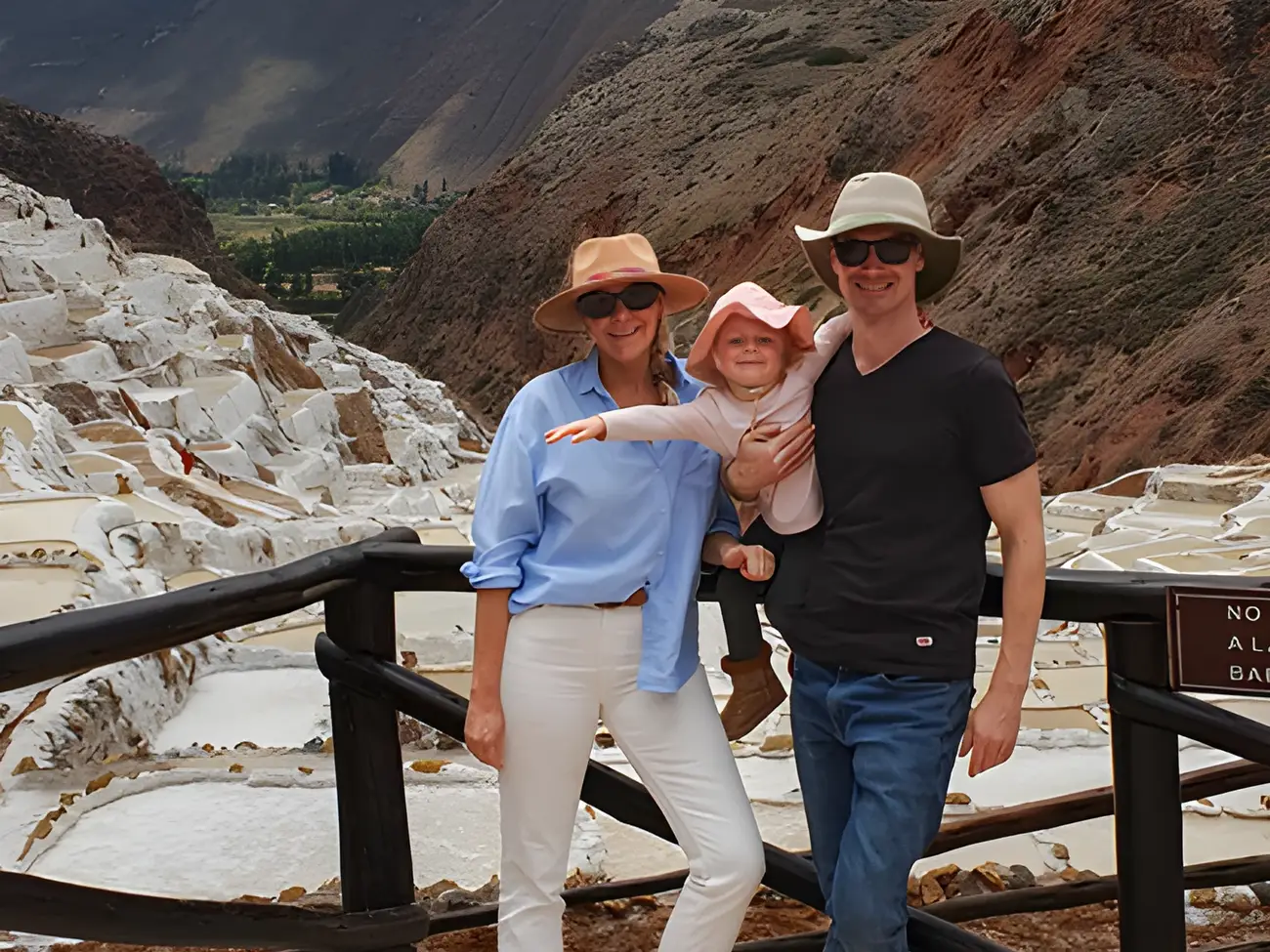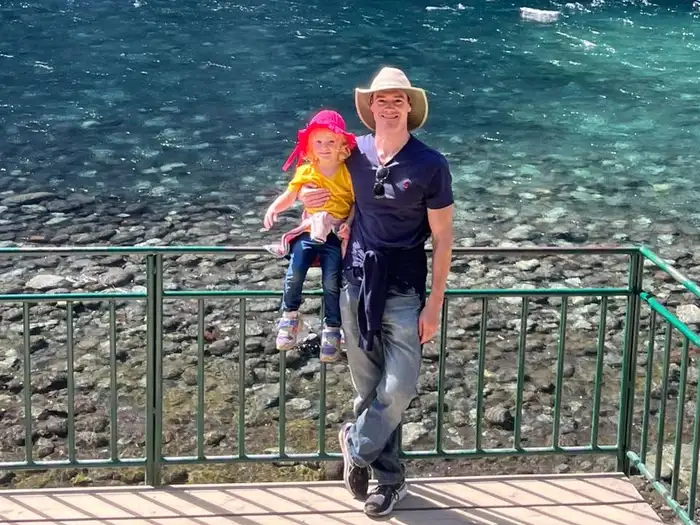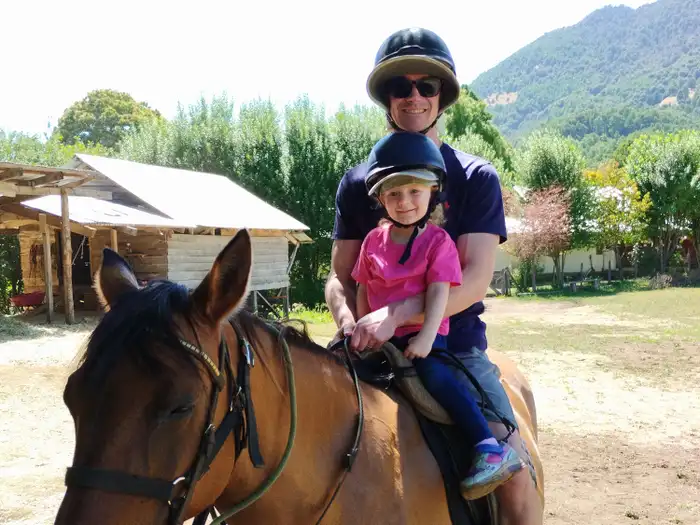A millennial FIRE couple shares how moving abroad and living on a $50k income helped them quadruple their net worth to $700k in 6 years

A millennial couple shares how they’ve grown their net worth from $100,000 to over $700,000 in the last six years.
About two decades ago, before he’d ever heard of the FIRE movement, Brian Davis decided to pursue financial independence and an early retirement.
He began investing his savings in rental properties, thinking that if he owned enough of them, he’d eventually be able to live off the rental income alone, the 43-year-old told B-17 via email.
But this didn’t go according to plan. He hated being a landlord, and some of the investments proved to be less profitable than he’d expected. The idea of retiring ahead of schedule seemed like it could be out of reach, so he decided to explore other options. Today, he runs a digital real estate investing platform.
However, in the years since, a lot has changed for Davis — both from a financial and philosophical perspective. For one, he’s grown his net worth to more than $700,000 as of May from roughly $150,000 in 2018, according to documents viewed by B-17.
Davis and his wife have aimed to live entirely off of his wife’s roughly $50,000 a year school counselor salary while saving and investing all of his income, which comes primarily from a real estate business he cofounded in 2016 — he said their annual household income is around $150,000. This saving strategy has been key to boosting their finances.
Davis’s financial goals have also evolved. After learning more about the FIRE movement — a financial lifestyle aimed at saving enough to become financially independent and retire before the traditional retirement age — Davis said he discovered that most people who managed to retire early eventually got bored of “sipping margaritas on the beach” and returned to work in some form. Rather than early retirement, Davis said his current goal is to live his ideal life, and he thinks remaining in the workforce can help him accomplish this.
“I have no plans to retire, but I do hope to reach financial independence within the next five years,” he said. “The less you worry about money, the more your work opens up to be fun, creative, and without limits on opportunities.”
While many Americans are having trouble saving for retirement, some are putting themselves in a position to stop working ahead of schedule through various savings and investment strategies. However, not all of these people are aiming for an early retirement. Some people, like Davis, want to continue working as they pursue financial security. But not just any kind of work: They want to spend their time on work that they enjoy or find fulfilling.
Davis shared how he’s grown his net worth — and why he thinks finding one’s dream work can help them live their ideal life.
Lower living expenses can make it easier to save

Brian Davis said the lower cost of living abroad has helped him and his wife save money.
Davis and his family, including his wife Katie and their daughter, have a huge financial advantage: They don’t pay for housing.
This is among the perks of Katie’s job: She works as a school counselor at international schools around the world. Davis said they first moved abroad in 2015, spending four years in Abu Dhabi and four years in Brazil before moving to Lima, Peru about a year ago. Davis said it’s not unusual for international schools to provide free housing for faculty and staff.
In addition to saving money on housing, they’ve been able to take advantage of the “lower cost of living overseas,” including cheaper food and healthcare costs. Davis said this was among the main reasons they decided to venture abroad.
“You can buy beef and pork in South America for a quarter of the cost in the US,” he said.
Davis said another big way he’s been able to save money is by avoiding car ownership — he said he hasn’t owned a car in five years.
“People don’t realize how much more cars cost than just the monthly payment,” he said. “Without a car, we don’t have to pay for car insurance, repairs and maintenance, gas, parking.”
The family’s reduced living expenses have enabled them to live entirely on Katie’s salary. However, Davis said that they don’t expect to have these financial perks forever, so they’re trying to take advantage of them now.
“At some point, we know we’ll have to move back to the US for family reasons,” Davis said. “So we’re trying to build our net worth and passive income streams as quickly as possible before we do.”
How pursuing dream work can help one live their ideal life

Brian Davis said doing work one enjoys later in life can boost one’s retirement savings and be fulfilling.
When Davis learned that many early retirees return to work in some form, he said this revelation was in some ways disappointing.
However, he’s since changed his tune. For example, if a person retires at age 60 — rather than age 50 — then it would be much easier for them to hit their retirement savings goal.
“It means that you don’t need nearly as much money as you thought you did,” Davis said. “If you’re going to keep doing some kind of work on your own terms, you’ll keep earning active income.”
However, that extra decade of work might not be satisfactory for everyone. That’s why Davis thinks the key is finding one’s dream work.
Davis said if someone is doing work they enjoy, then they likely won’t be so desperate to give up work and retire. And even if this means transitioning to work that’s lower-paying than one’s old job, Davis said this is where the savings strategies well-discussed in the FIRE community can come in handy: They can help bridge the gap between one’s desired and actual income.
“You just need enough money to cover any shortfall between what you want to spend and what your dream work pays,” he said. “In other words, you can start living your ideal life now, or very soon, without being financially independent.”
To be sure, finding a job — forget about one’s dream job — is easier said than done in today’s economy. Many Americans are having a harder time finding work as companies pull back on hiring.
For Davis, his business is one component of his dream work. He said he gets all the benefits of real estate investment without the headaches of being a landlord.
“I don’t consider myself financially independent, but I’m living the same life that I would be if I were,” he said. “I get to do work I love, on my own schedule, from anywhere in the world.”
His top advice for people is to envision their ideal lifestyle and determine what type of work and income level they need to make it a reality.
“Once you reframe FIRE in those terms, it gets both easier and more fulfilling, rather than just dreaming about sitting on a beach as a bum for the rest of your life,” he said.






